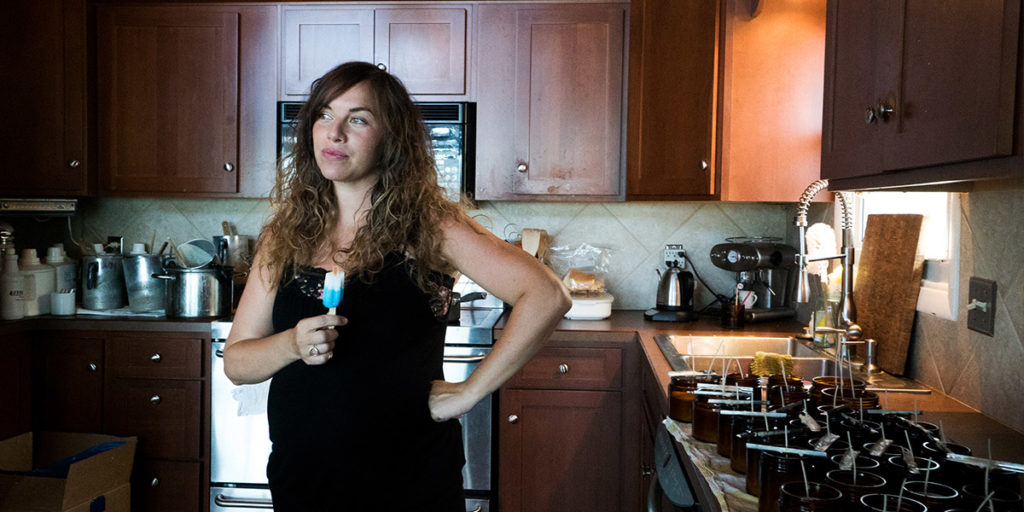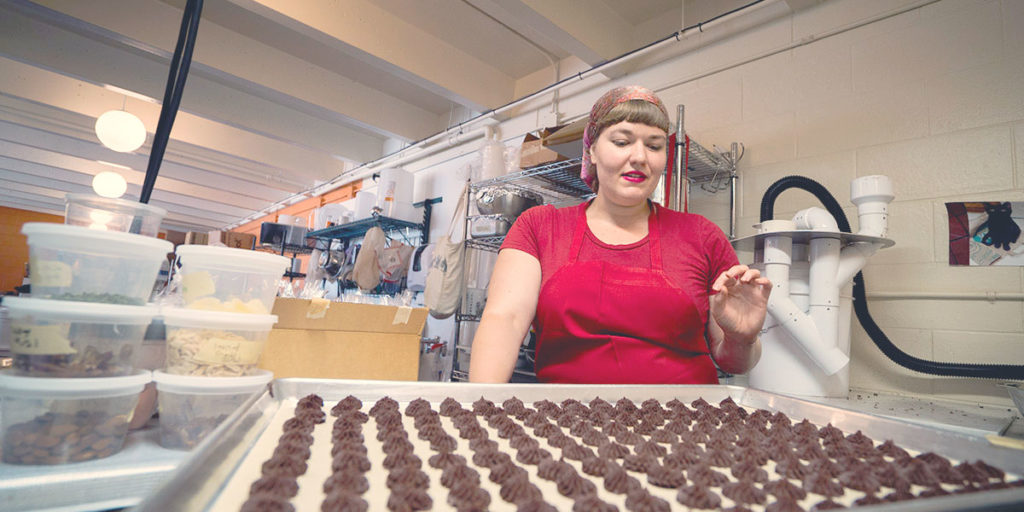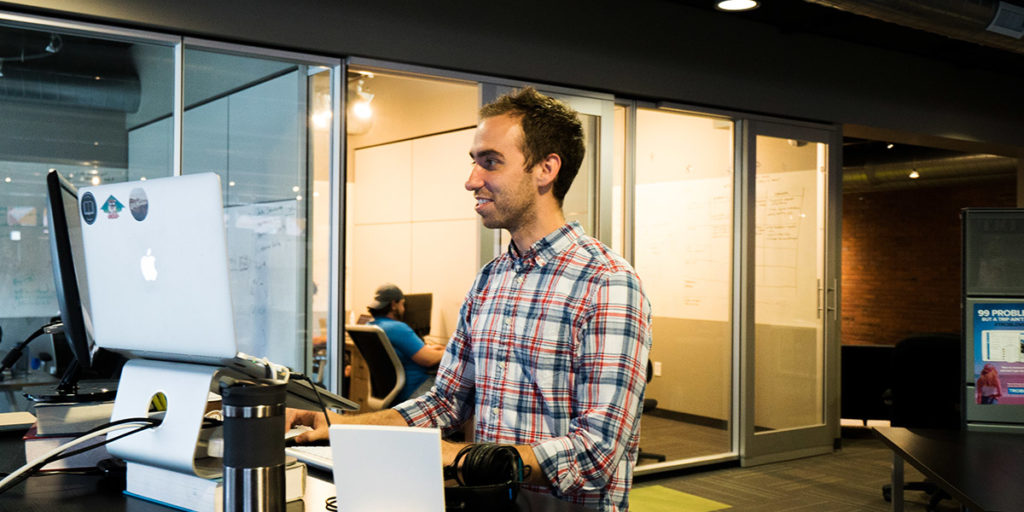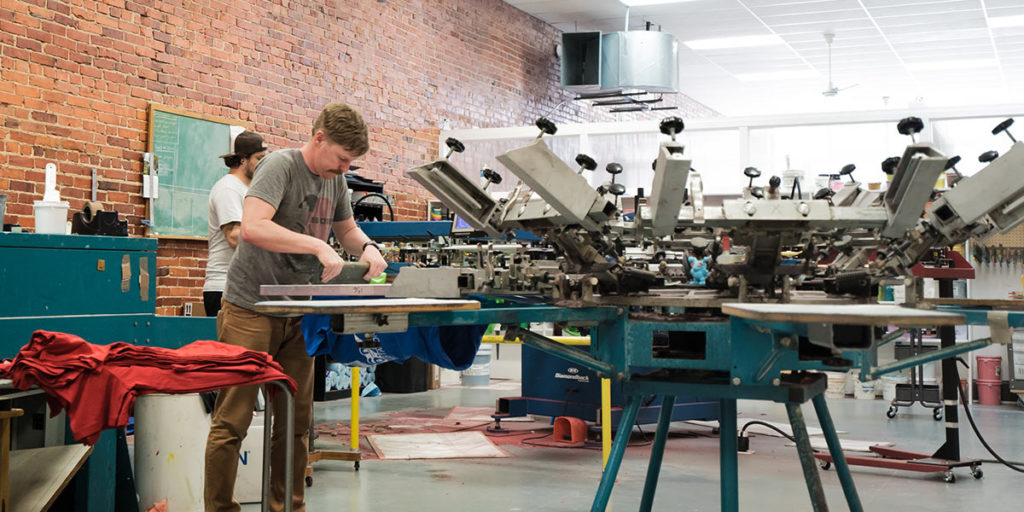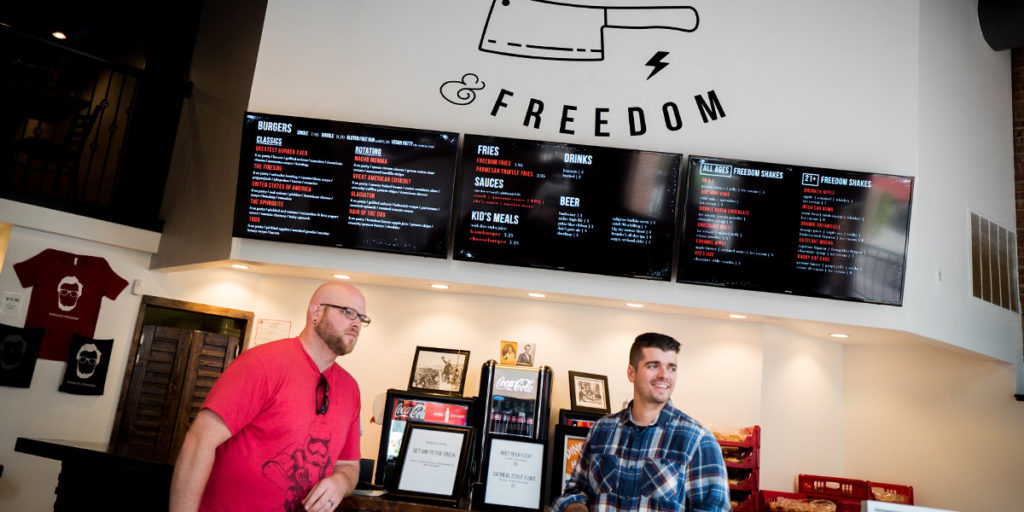
It started with a food truck.
Scratch that.
It really started with a conversation over a sandwich.
Erik Hustad and Gabe Lovelace grew up together. They’re first cousins, former band mates and friends. Now, they’re the co-owners of Honest Abe’s and Ground Up Kitchen.
Back to that sandwich… Erik graduated from culinary school in Seattle and worked in the restaurant business before moving back to Lincoln. He was itching to start his own thing and he had a few ideas.
This is where Gabe comes into the picture. Erik and his wife, Jess, would come over to Gabe and his wife, Emily’s, house to try out new recipes. This was a pretty common practice for the couples – it gave them an excuse to hang out and eat really good food.
That night, while experimenting with a new chicken salad sandwich recipe, Erik pitched his idea for a burger joint to Gabe. They talked about it briefly and then moved on to a different topic.
Gabe called Erik up a few days later saying something like… “Hey, were you serious about that burger idea? Because, I’d be up for it…”
Erik responded with a question… “What would you think about being my partner in some sort of restaurant?”
Gabe was all in.
“I was his third option,” Gabe said with a laugh, looking over at Erik.
“I didn’t even know he was interested! And he was the only one who said yes, quit his job and came to run this ridiculous food truck,” Erik said.
While Erik had the food know-how, Gabe had the love of food and a desire to find a new job. Gabe had started and quit college three times, worked in the healthcare industry, dabbled in music and had a long list of mediocre jobs.
So, the cousins started a food truck. While they talked about the burger idea, they quickly realized you can’t make good burgers very quickly in a food truck, so they ran with a sandwich and mac and cheese concept they called GUP Kitchen – ‘GUP’ was short for Ground Up.
They got a loan from the bank, spent nearly all of it on buying a truck and trailer and then opened up for business on what felt like a sub-zero temperature day in November 2011.
“I think my mom was our only customer that day,” Erik said with a laugh.
Within their first year of business, Erik and Gabe secured a brick and mortar shop near 70th and Vine streets where they launched Honest Abe’s, their burger concept, in August 2012.
The burger idea took off fast and the guys were a little surprised. They’d meant for Honest Abe’s to be a casual burger joint with a small, but specific menu and really good fries, but things seemed to balloon overnight.
Ten months later the duo opened Sebastian’s Table, a Midwest tapas-inspired restaurant.
They went from spitballing ideas over sandwiches to running three different restaurants in a matter of years. It was hard work and Erik and Gabe put in long hours those first few years because there was a lot at stake – they had wives, kids and mortgages. They dipped into their savings to try new things, take manageable risks and hire people they trusted.
Things were going well, but not every venture was a success. Eventually they shut down the GUP Kitchen food truck, they started and closed Sasquatch Cafe, Sasquatch Bakery and Como Se Taco. In the fall of 2015 they closed Sebastian’s Table.
“My all or nothing, dream big or go home mentality has played a factor in our successes and our failures,” Erik said. “And Gabe’s steadiness and conservative nature is the one of the reasons those successes didn’t crash…”
But it was through opening so many restaurants that Erik and Gabe learned what works and what doesn’t… and Honest Abe’s is what’s working really well, they said. It’s why they opened a second location downtown and why they’re thinking about expanding the brand even more.
It doesn’t mean they’re giving up on other restaurant ideas, not a chance, but they’ve learned a lot about how to run and maintain a restaurant in Lincoln.
As their business has grown, Erik and Gabe have learned how to step back, delegate and hire people they trust. They put a big emphasis on hiring the right group of people to create a culture that values people and the community.
They’ve also learned about themselves, how they work best together and what they’re not willing to sacrifice for their business.
These days, Erik said he gets to tuck his kids in at bedtime every night, and that’s not something he’s willing to compromise, and Gabe agrees.
The thing about Erik and Gabe is that they’re writing their own story. They’re not into industry standards or following strict guidelines. Instead, they’re propelled by their trust in each other and their belief in investing well in people.
Their collective story may have started with a band, a food truck and a conversation over a sandwich, but that’s not where this story ends.
